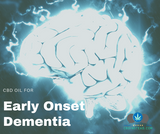If OCD were like it was in the movies, it would be a lot more romantic. But OCD is frustrating, overwhelming, exhausting, and sometimes humiliating. While medication like CBD Hemp oil for OCD is a great way to help treat your symptoms, medication alone isn’t likely to give you the best outcome possible. There is a lot of evidence that tells us that therapy is one of the most successful ways to help treat mental health issues alongside medication and in some cases even instead of medication and this goes for people with OCD, too.

What Is CBT?
Cognitive Behavioral Therapy (CBT) is a popular therapy for many kinds of psychological issues because it is so effective. People with who suffer from panic disorders, phobias, PTSD, eating disorders, addictions, psychosis, and OCD all have found success in this type of talk therapy.
CBT gets its name because it is a mix of cognitive therapy and behavioral therapy. Cognitive therapy is focused on how you think while behavioral therapy focuses on what you do. In treatment, your therapist will help you learn other ways of thinking and consider how they would affect the way that you behave. CBT is based on the idea that your thoughts, actions, and feelings are all connected.
While CBT is a talk therapy, it is different from other talk therapies like counseling. It is more focus on the problems of the present instead of focusing on the patient’s past. This is also a therapy that you won’t be sitting in for the rest of your life; it isn’t meant to. This therapy is supposed to be complete in as little as weeks, or it can take months, but never something that you have to live with forever like your illness if you don’t get it treated.
The whole purpose of CBT is to help you become your own therapist. Your therapist will fill you with the knowledge and tools to work toward a complete recovery from OCD. You learn that it isn’t your thoughts that are the problem, it is what you make of the thoughts and what you do about them. Can you imagine a life where you thought about something, and you were able to put that thought to rest? Sounds relaxing, doesn’t it?
So how do they do it? How do they retrain your brain when it is so stubborn?
Understanding how different responses to thoughts affect the way you behave is one of the ways that your therapist will help you overcome your OCD compulsions. Let me give you an example.
It’s Friday night, and you’re snuggling up on the couch watching The Office for the seventh time. You hear a loud boom outside, and it makes you jump. Do you think:
- “It must be the transformer down the street, my power better not go out,” and then anticipate frustration.
- “Is someone setting off fireworks?” And run to the window to watch in excitement.
- “Was that a gunshot?” And then call the police feeling frightened.
Each of these reactions has its own emotion. One of them is pretty pleasant, while the others are not so much. Research explains that almost everyone has intrusive thoughts that might make no sense to them or are alarming, so the aim of CBT isn’t to get rid of these thoughts altogether. This therapy doesn’t mainly focus on the thoughts that are causing you compulsive behavior or distress, instead, CBT is meant to help you learn how to change the way you behave and feel because of them.

What To Expect In CBT
It can be a bit intimidating going to a therapist for the first time. You are about to become vulnerable in front of someone which is never easy to do. So, knowing what you are getting into before you go can help ease your mind and prepare you. And don’t worry, it’s not as scary when you get there and start talking.
The first thing your therapist may ask you to do is think about a time where your OCD was really bad and then go into detail to try and understand what thoughts, urges, images, or doubts were happening at the time. This way your therapist can get to the bottom of what causes your behavior to change.
The realistic goal for CBT isn’t to get rid of all intrusive thoughts entirely, but instead to help manage the way they affect you. If the thought that you may have misspoken pops up into your head, instead of dwelling on it and letting your anxiety grow a therapist will help you learn to reframe the thought into something less overwhelming and negative. Everyone has these kinds of thoughts, even the bad ones you might not tell people about. But the difference between someone with OCD and someone without is that people who don’t have OCD are able to let the thought pass.
Your therapist may also use ERP, Exposure and Response Prevention, in addition to their talk therapy. ERP is when they will expose you to thoughts, images, or situations that make you feel compulsive or anxious and then help you not follow through with compulsions after you have been triggered. When you start, you will be in the safe care of your therapist, and they can go at your comfort level to help make treatment less overwhelming. In the end, they will encourage you to practice it by yourself to help manage your symptoms.
What Studies Say About CBT and OCD
The reason that ERP is so commonly done alongside CBT with OCD patients is that studies have shown how effective the therapies combined can be. Studies suggest that CBT therapy is more effective than just taking medicine alone and there is a lower relapse rate than medication. Studies have also shown that people who participate in CBT continue to get better after treatment, making it one of the most recommended treatment types for OCD.
In patients with OCD, there are abnormalities in the white matter of their brain which is what helps your brain send messages from region to region. An exciting study published this year suggested that CBT may be able to reverse this abnormality, which may explain why it is such an effective long-term treatment for OCD.

How to Find the Right CBT Therapist
Would you go to a surgeon who had a high fatality rate? Would you go to a dentist whose reviews state that people come out worse than when they went in? Your mental health is just as important as your physical health and doing your due diligence to find the right therapist will benefit you in the long run. But don’t worry, it’s not that hard to find what you are looking for once you know what you need.
Before you go into the office, make sure the therapist checks these boxes:
- Images of their office and waiting room that make you feel comfortable
- A way to check their credentials like degrees and schools they went to
- A website that explains their methods and what to expect during your time with them
- Accepting and receptive of any feedback or criticism that may be public
- Has specializations that relate to you, but not an extremely long list
- Good customer service over the phone with new applicants
- Takes your insurance or has a good payment plan
- Is open at a time that is most convenient for you
Things to Ask Your Therapist
Before you commit to a therapist, you may want to ask them some questions to make sure they are right for you. If you find out halfway through treatment that they aren’t the right fit for you, it can make treatment take even longer. Here are some questions you can ask your therapist to help you get an idea.
- How do you expect to help me?
- How long do you spend with your patients?
- What has been your experience in treating OCD?
- Do you have your own therapist?
- How will you be assessing my progress?
- What does your ideal client look like?
- What can I do if I have a lot of issues in between sessions?
- Would I be able to bring anyone into the session with me?
- What is and isn’t private and confidential during this process?













